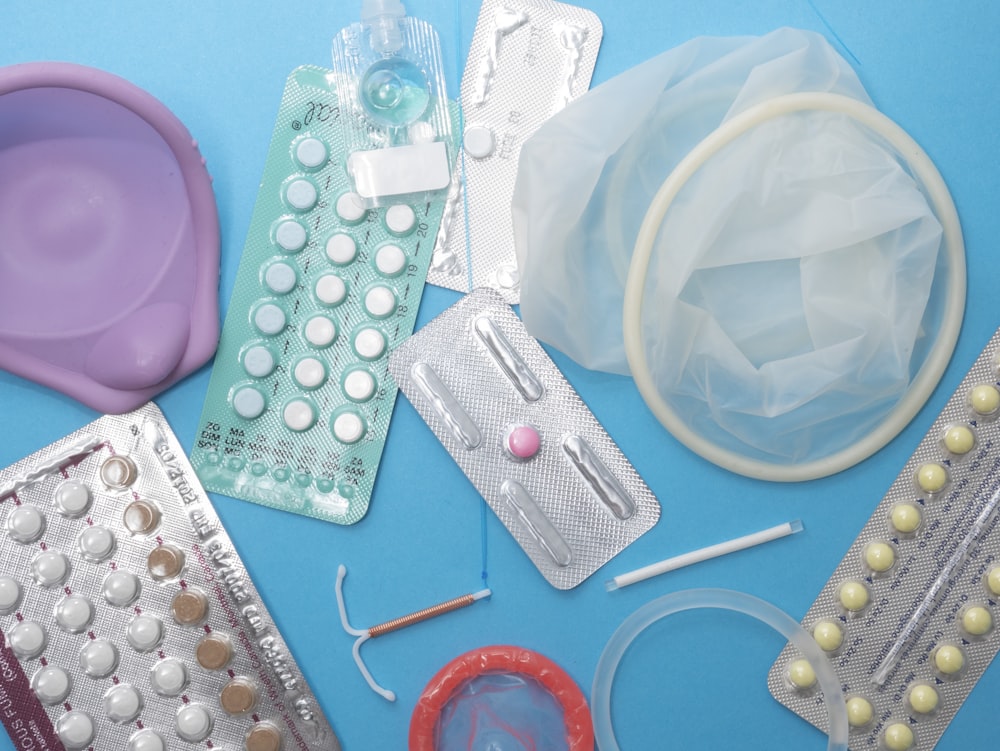
For many, the stage of life known as adolescence or puberty can be a difficult and complicated time. Our bodies undergo a number of changes– all of which create unique concerns, anxieties, and confusions. The combination of hormonal fluctuations and the maturation of interpersonal relationships made throughout middle and high school make puberty an especially emotional time. Some of these emotions stem from newfound sexual urges that appear as one matures. If you are experiencing sexual desire or thinking about becoming sexually active, but are unaware of how to approach your parent(s) or guardian(s) about being practicing safe sex, here are a few helpful tips to consider.
Asking Parent(s) or Guardian(s) for Condoms

Talking to a trusted adult about sex and sexuality, like asking for a condom, can be an awkward or uncomfortable experience for many. Approaching the adult(s) in question carefully and honestly in a private space away from distractions creates an environment conducive to a productive and safe conversation. Ensuring they are feeling relaxed and in good spirits is also an ideal time to initiate a conversation. Next, consider what you are specifically interested in discussing; this is often the most difficult step as every parent or guardian has different beliefs and opinions surrounding sex and sexuality. Try putting together a list of topics you are most concerned with.
It is best to start the conversation with being open and honest about your intentions regarding condoms. A conversation starter may be, “Hey [Name/Title/Nickname of Trusted Adult], I wanted to come to you about this first, and now rather than later.” Saying this lets your parent(s) or guardian(s) know that you respect them and want them to be aware of this aspect of your personal growth. Throughout the conversation, maintain transparency about your intentions: you might say, “I am (having/planning to have/thinking about having) sex and I want to be sure I am safe,” or “If I decide to have sex I want to be safe and use condoms to protect myself from sexually transmitted infections (STIs) and pregnancy.” By making your intentions explicitly clear, you are communicating to your parent(s) or guardian(s) that you are responsible, deliberate, and have put thought into this important decision. After having a serious discussion, your parent(s)/guardian(s) may or may not decide to assist you in acquiring condoms.
If they are unwilling to help you themselves, but you are still seriously considering having sex, there are other ways to get condoms. There is no age requirement to purchase condoms, nor is the permission of a parent or guardian required. Condoms are commonly available at convenience stores and gas stations. Sometimes schools will offer them for free at the nurse’s office, and clinics such as Planned Parenthood also typically provide free condoms.
People with penises are not the only ones able to use condoms to protect themselves and their partner(s) from STIs and pregnancy. People with vaginas are able to use female condoms to protect themselves from these outcomes as well. Female condoms can also be purchased over the counter without a parent or guardian. If condoms are unavailable, the use of a dental dam would also help prevent the spread of STIs, but is not effective in preventing pregnancy.
Asking Parent(s) or Guardian(s) for Birth Control

Various methods of birth control offer another option to practice safe(r) sex. There are multiple ways in which birth control is accessed– some require parental consent and others allow for minors to receive birth control independently. One method involves consulting a physician and having them prescribe/insert the birth control directly. Do some research beforehand and be sure to ask questions while consulting the doctor, because almost all birth controls have side-effects.
There are several forms of birth control, but a few of the most popular options in America today include: the hormone pill, the copper IUD, the Nexplanon implant, and the Depo-Provera injection. The method that works best for one person may be completely different than the one that works for you– this is why it is important to do one’s own research and consult with a physician. For more detailed information about different kinds of birth control and their side-effects, check out the following SexInfo article: Birth Control. In the United States, many states have patient confidentiality laws in place to protect minors right to private sexual health services, meaning that individuals under the age of eighteen do not necessarily need the permission or consent of a parent/guardian to access these services.1 If one is located outside of the United States, or is unsure if whether these services are offered in their country of residence, consult a primary care provider about privacy laws to determine if sexual health information is protected.
If these options are unavailable or difficult to obtain on one’s own, it can be tough to tell parent(s) or guardian(s) that you are considering going on a form of birth control. The best course of action is to be honest and calm when discussing your intentions for going on birth control. Again, it is best to discuss these topics in private without distractions. Parent(s) or guardian(s) may be surprised and ask many questions; remain composed and answer all questions honestly. Remaining calm increases the likelihood that parent(s) or guardian(s) will also remain calm and be open to further discussion. Some level of awkwardness is inevitable, but if you keep your composure and respond to questions seriously, the adults in question will have a better sense of your level of responsibility. If the circumstance seems at all unsafe or frightening, consider talking to another trusted adult. If discussing matters of sex and sexuality is not possible or too uncomfortable, another route is to suggest that the birth control will help regulate one’s menstrual cycles. Many people with vaginas struggle with irregular menstrual cycles and painful cramps, which can be alleviated with certain birth control methods.
Concluding Remarks
Experiencing sex and utilizing safety precautions can be awkward, laughable at times, and a lot to take in. Being open and honest with one’s parent(s) or guardian(s) about intentions and concerns allows for a more effective conversation to take place. If a conversation with parent(s) or guardian(s) is unsafe, consider discussing condoms and birth control with another trusted adult such as an aunt, uncle, sibling, school counselor, or doctor. Always remember there are a number of ways to be safe about sex. For any other questions and concerns regarding safe sex practices or teen sexual health/development, be sure to look through our related articles on SexInfo Online.
References
- Unknown. (Unknown). How Do I Get Condoms? Planned Parenthood.
- Brown, L. N. (2013, October). Dental Dams. Sutter Health.
- Unknown. (2020, March 5). Birth Control Comparison Chart. SexInfo Online.
- Unknown, E. (2017, September 28). I’m 16. Can I get birth control at Planned Parenthood without my parents’ permission? Planned Parenthood.
Last Updated April 13, 2021.
